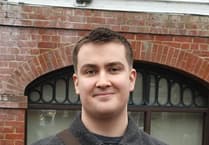WE ALL know the NHS has been working flat out to deal with the pandemic – but that tragically for every Covid death there has been another caused by delayed access to other services such as cancer treatment.
We had heart-breaking testimony at the select committee from people whose cancer treatments were stopped in the first lockdown, one of who subsequently sadly died.
Thankfully the NHS learned many lessons in subsequent lockdowns, with much less interruption to services. But improving cancer treatment will require long-term changes too.
When I was health secretary I was always troubled that our cancer survival rates are not as good as in France or Germany.
It turned out that while we had a plethora of targets to make sure cancer treatment was prompt following a diagnosis – and it usually is – we just don’t find out about many cancers early enough.
Indeed, around a quarter of cancers are diagnosed in A&E departments which tends to mean they have been left to stages 3 or 4. A cancer picked up in stages 1 or 2 is far more likely to be curable – in the case of colorectal cancer, for example, nearly everyone survives if diagnosed at stage 1 compared to less than half of those diagnosed at stage 4.
There are lots of things we can do to improve the situation, which is why I am launching a campaign to help improve local cancer services.
Firstly, we need to make sure everyone locally is up to date on screening for bowel, cervical and breast cancer, not least given some screening services may have been delayed by the pandemic.
Cervical screening should happen every three years for women aged 25 to 49 and every five years for those aged 50 to 64; breast screening should be every three years for women aged 50 to 71; and bowel screening (the ‘FIT test’) should happen every two years for all aged 60 to 74). If you are not sure if you are up to date, you should contact your GP.
Investment in local cancer provision can also help. The chief executive of the Royal Surrey, Louise Stead, is determined to turn the hospital into the pre-eminent cancer hub in the south east.
It already has the second-largest number of robots in the country doing cancer operations, and is aiming to diagnose two-thirds of cancers at stages 1 and 2 during this parliament, up from around half at present.
To do that, I want to help her and her team secure the Royal Surrey’s future as a regional breast and skin reconstruction hub. We also need to support her efforts to build a dedicated surgical short-stay unit. Most importantly, she needs staff to help with radiology and endoscopies.
You can help the campaign by filling out the survey on my website at www.jeremyhunt.org/cancer-survey
The more people who sign up, the better our chance of securing additional investment from the local NHS.
I am also holding a public meeting to discuss these issues on July 2 – probably virtually.
Louise Stead and other senior NHS representatives will be there to answer your questions. We will send details of how to join to all those who support the campaign.
I have always wanted our NHS to blaze a trail as the safest, highest-quality health service in the world.
With the vaccination campaign we have seen its true potential – let’s now do the same for cancer!
And let’s do so by starting here in South West Surrey – as Gandhi famously said, ‘think globally, act locally’.




